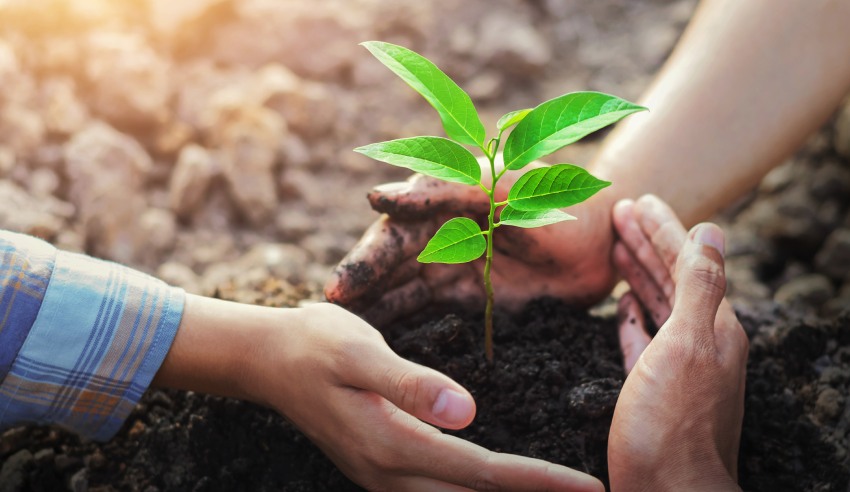Getting to net zero will require open conversations, collaboration and diverse leadership – both in larger and SME businesses – this panel discussion revealed.

As part of a string of International Women’s Day events, the Governance Institute of Australia hosted a panel discussion on sustainability and women in leadership.
Ms Toohill said that it’s important for companies to focus on both ESG and sustainability in order to get to net zero.
“The way I think about it is that ESG is about the fundamentals of environmental, social, and governance performance and we’ve got to get those right. And sustainability is the aspiration, the goal, what is it we’re trying to achieve? We actually have to work at both all the time, building those fundamentals.
“And I think in the past, I’ve often spoken about the aspiration, but we haven’t been really clear about the fundamentals, because it will shift back to those fundamentals. But we absolutely need both,” she said.
“Net zero has to be the main game right now. Most important is working with our customers and supporting them to change over time. So, in my organisation, it’s not just putting sustainability at the centre. We are training our people in all different ways, designing programs that are relevant to the class of role so that they can have the right conversations and support their customers.”
Ms Parkin said that across her business, she’s already seeing a number of positive changes – but that more women need to be in leadership in order to drive increased sustainability.
“We now find companies aren’t asking if they should change, they’re not arguing about the fact they need to change, they’re asking us how to change. So, we’ve got a really, really important focus on engagement, with companies, with regulators, with the legislative system. And we all need to work together; change is only going to happen when we have all levels working together.
“For companies to get to net zero, they’re going to need transparency, inclusivity, great communication, collaboration, engagement, relentless ambition and courage. And to address the social crisis, we really need leaders with empathy, compassion, openness, long-term thinking, creativity, listening and resilience – all of which are traits attributed to women,” she said.
“But we do need that diversity of thought, and it’s very true women’s voices have been less traditionally heard. For me, I think it starts with the definition of leadership. And the definitions that really resonate with me are the ones that say leadership is about change. It’s about learning. It’s about passion and purpose. And it’s about bringing attention to those whose voices are less heard.”
In addition to diverse and empathetic leadership, collaboration will be key in this space moving forward, agreed Ms Toohill.
“Business is really quite traditionally focused on how you compete. But in the space around sustainability, the challenges of climate change and human rights and biodiversity means you can’t solve all these challenges on your own. You absolutely have to collaborate and work through this together,” she said.
“It does require a variety of different skill sets and the willingness to be open and to drive change together. And I genuinely get so excited about this. We’re working with companies right across different sectors, across the mining sector, finance sector, material sectors, working through how we support that transition here in Australia and learning from each other, because that’s the only way to get things done and changed to get to net zero ahead of 2050.”
In terms of what boutique and SME businesses can contribute to sustainability – and how they can improve their output, Ms Parkin said smaller businesses still have a responsibility to address climate change, and it’s actually easier than in bigger organisations.
“Collaborate with other companies, talk to investors, get that extra support. Even sometimes, a sustainability consultancy can be useful,” she added.
“I would say to start where you can, work out what’s material for your business, but not just material in terms of risk, or even material in terms of opportunity, work out where you can create an impact. Start being that voice of change.”
Similarly, Ms Toohill advised smaller businesses to be open to collaboration and transparent conversations.
“Have a conversation with your customers, who might be more pressed in terms of understanding what solutions they need. Because you might be well-positioned to create opportunities in your business to meet those needs. Just keep having those conversations. There is so much opportunity around helping support the transition, but also addressing the physical risk as well,” she concluded.
“So, I think it starts with conversations, and those ideas and the collaboration between companies is so, so important. I think the piece right now working with NGOs and civil society is the opportunity for collaboration and working together constructively can be really powerful.”

Lauren is the commercial content writer within Momentum Media’s professional services suite, including Lawyers Weekly, Accountants Daily and HR Leader, focusing primarily on commercial and client content, features and ebooks. Prior to joining Lawyers Weekly, she worked as a trade journalist for media and travel industry publications. Born in England, Lauren enjoys trying new bars and restaurants, attending music festivals and travelling.